In today’s tech-driven world, becoming a DevOps engineer is like finding a golden ticket in a chocolate bar. With the perfect blend of development and operations, this role is the ultimate backstage pass to the tech concert of your dreams. If you’ve ever wanted to be the superhero who saves the day by bridging gaps and automating processes, you’re in the right place.
Table of Contents
ToggleUnderstanding DevOps
DevOps represents a cultural shift in the IT landscape. This approach combines software development and IT operations to enhance productivity and agility.
Definition of DevOps
DevOps is a methodology and set of practices that promotes collaboration between development and operations teams. Through shared responsibilities and workflows, it shortens the software development lifecycle. Continuous integration and deployment form essential components within this framework. Automation of tasks supports more efficient processes, ensuring quick feedback loops and improved product quality. Overall, DevOps enables organizations to deliver software faster and with fewer errors.
Importance of DevOps in Modern IT
DevOps plays a crucial role in contemporary IT environments. Many organizations now prioritize speed and reliability in their software delivery. This approach enhances collaboration among teams, breaking down silos and fostering a culture of shared goals. Organizations that adopt DevOps practices often report increased deployment frequency and reduced lead times for changes. Furthermore, enhanced communication leads to better alignment with business objectives. Embracing DevOps ultimately drives innovation and keeps organizations competitive in a rapidly evolving market.
Skills Required for DevOps Engineers

DevOps engineers must possess a blend of technical and soft skills to excel in their roles. Mastery of these skills facilitates successful interactions between development and operations teams.
Technical Skills
Proficiency in various programming languages, such as Python, Java, or Ruby, enhances a DevOps engineer’s effectiveness. Familiarity with version control systems, particularly Git, is crucial for managing code changes. Understanding containerization technologies, like Docker and Kubernetes, allows for efficient deployment and management. Expertise in cloud platforms, such as AWS, Azure, or Google Cloud, provides essential infrastructure knowledge for scalable applications. Automation tools, like Jenkins or Ansible, are vital for streamlining processes. Knowledge of monitoring tools, including Prometheus or Nagios, aids in ensuring system reliability and performance.
Soft Skills
Effective communication stands out as a critical soft skill, enabling collaboration across teams. Strong problem-solving abilities drive quick identification and resolution of issues. Adaptability helps engineers navigate the rapidly evolving technology landscape. Teamwork fosters a culture of shared responsibility and collective success. Time management ensures the successful execution of projects within set deadlines. A proactive attitude contributes to continuous improvement and innovation in processes.
Educational Pathways
Educational pathways play a crucial role in becoming a DevOps engineer. Various degrees and certifications enhance knowledge, skills, and employability in this field.
Relevant Degrees and Certifications
Many aspiring DevOps engineers pursue bachelor’s degrees in Computer Science, Information Technology, or Software Engineering. These programs provide foundational knowledge in programming and systems management. Advanced degrees, such as a Master’s in DevOps or related fields, deepen expertise and may lead to higher-level positions. Certifications further validate skills; options include AWS Certified DevOps Engineer, Microsoft Certified: Azure DevOps Solutions Expert, and Docker Certified Associate. Earning these certifications demonstrates proficiency and commitment to industry standards.
Alternative Learning Resources
Alternative learning avenues exist for those preferring non-traditional education methods. Online platforms like Coursera, Udacity, and edX offer specialized courses tailored to DevOps practices and tools. Bootcamps provide intensive, hands-on training, focusing on essential technologies in a short timeframe. Communities like GitHub, Stack Overflow, and various forums facilitate collaboration and knowledge sharing among peers. Engaging in practical projects builds experience and enhances skill development, offering valuable insights into real-world applications.
Gaining Practical Experience
Gaining hands-on experience plays a crucial role in becoming a successful DevOps engineer. Practical exposure helps individuals apply theoretical knowledge in real-world situations.
Internships and Entry-Level Positions
Internships provide valuable insight into the DevOps landscape. They allow aspiring engineers to work alongside experienced professionals, gaining exposure to essential tools and practices. Securing entry-level positions in IT or development teams also offers practical experience. These roles often involve collaborating on team projects while learning the nuances of continuous integration and deployment. Many employers value internships and entry-level experiences as prerequisites that demonstrate commitment and readiness for more advanced responsibilities.
Personal Projects and Open Source Contributions
Engaging in personal projects enhances skills significantly. Developing applications or automation scripts demonstrates proficiency in programming languages and tools. Additionally, contributing to open source projects builds a robust portfolio while fostering collaboration within the tech community. Participating in these projects showcases problem-solving skills and adaptability, two key attributes for any DevOps engineer. Sharing these experiences on platforms like GitHub also attracts potential employers, signaling a proactive approach to learning and growth in the field.
Networking and Community Engagement
Networking and community engagement play vital roles in becoming a successful DevOps engineer. Building connections in the industry opens doors to opportunities and insights that enhance professional growth.
Joining Professional Organizations
Many professionals join organizations like the DevOps Institute or IEEE. Networking events hosted by these groups foster relationships with industry experts. Membership often provides access to resources such as webinars, workshops, and certification programs. Engaging with peers through these organizations strengthens knowledge and shares best practices. Collaborating in projects often leads to mentorship opportunities that further career advancement.
Attending Workshops and Conferences
Attending workshops and conferences presents chances to learn from industry leaders. Events like DevOpsDays or AWS re:Invent showcase the latest advancements and tools in the field. Networking during these gatherings promotes collaboration on various projects. Participating in hands-on sessions enables aspiring engineers to gain practical experience. Connecting with speakers and fellow attendees often leads to valuable insights and future job opportunities.
Becoming a DevOps engineer is a rewarding journey that blends technical expertise with collaborative skills. This role not only enhances productivity but also drives innovation in the tech industry. By focusing on essential skills and gaining practical experience, aspiring engineers can position themselves for success.
Networking and community engagement play crucial roles in this field. Building relationships with industry professionals can lead to valuable insights and opportunities. With dedication and the right approach, anyone can thrive in the dynamic world of DevOps, making a lasting impact on their organization and the broader tech landscape.



